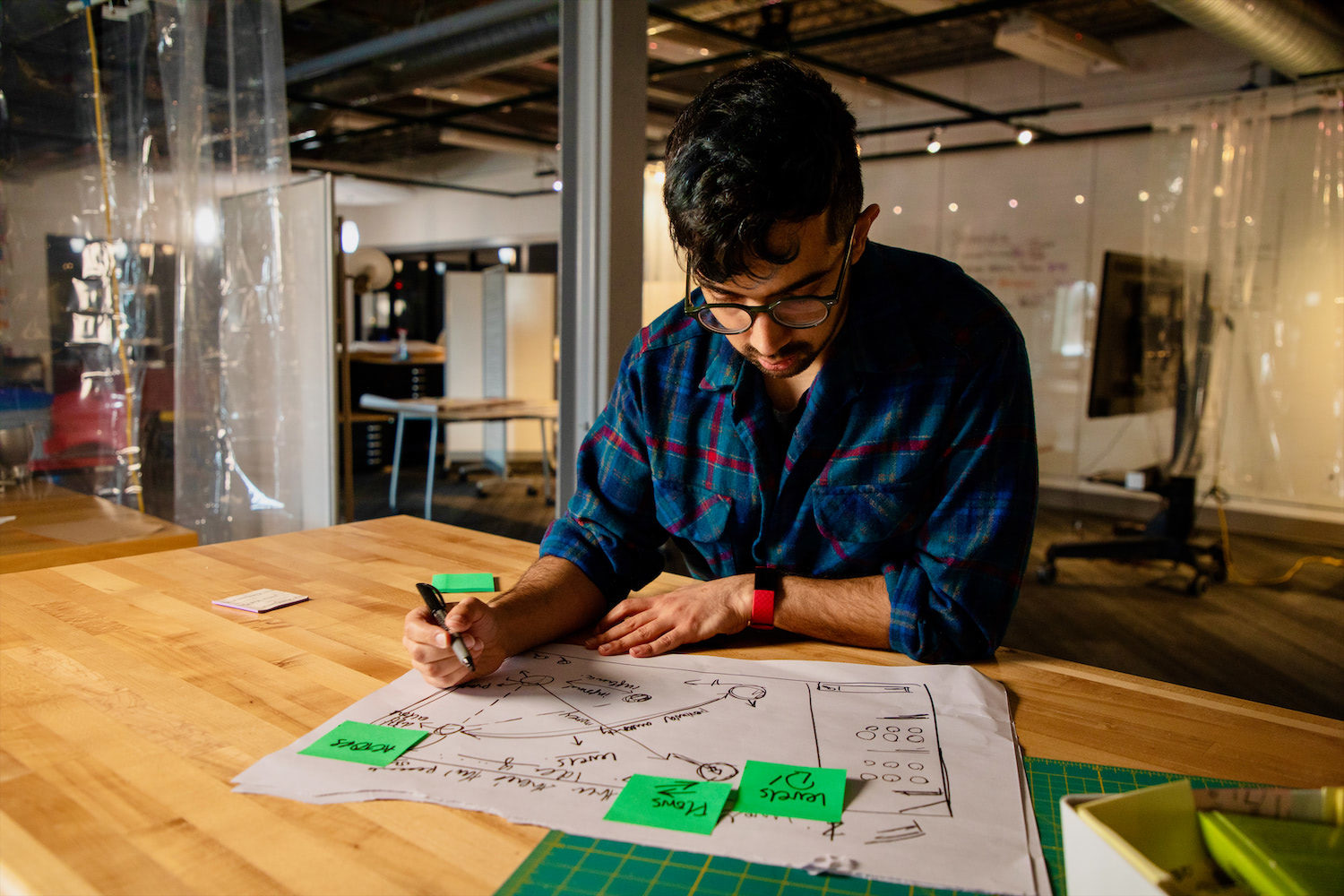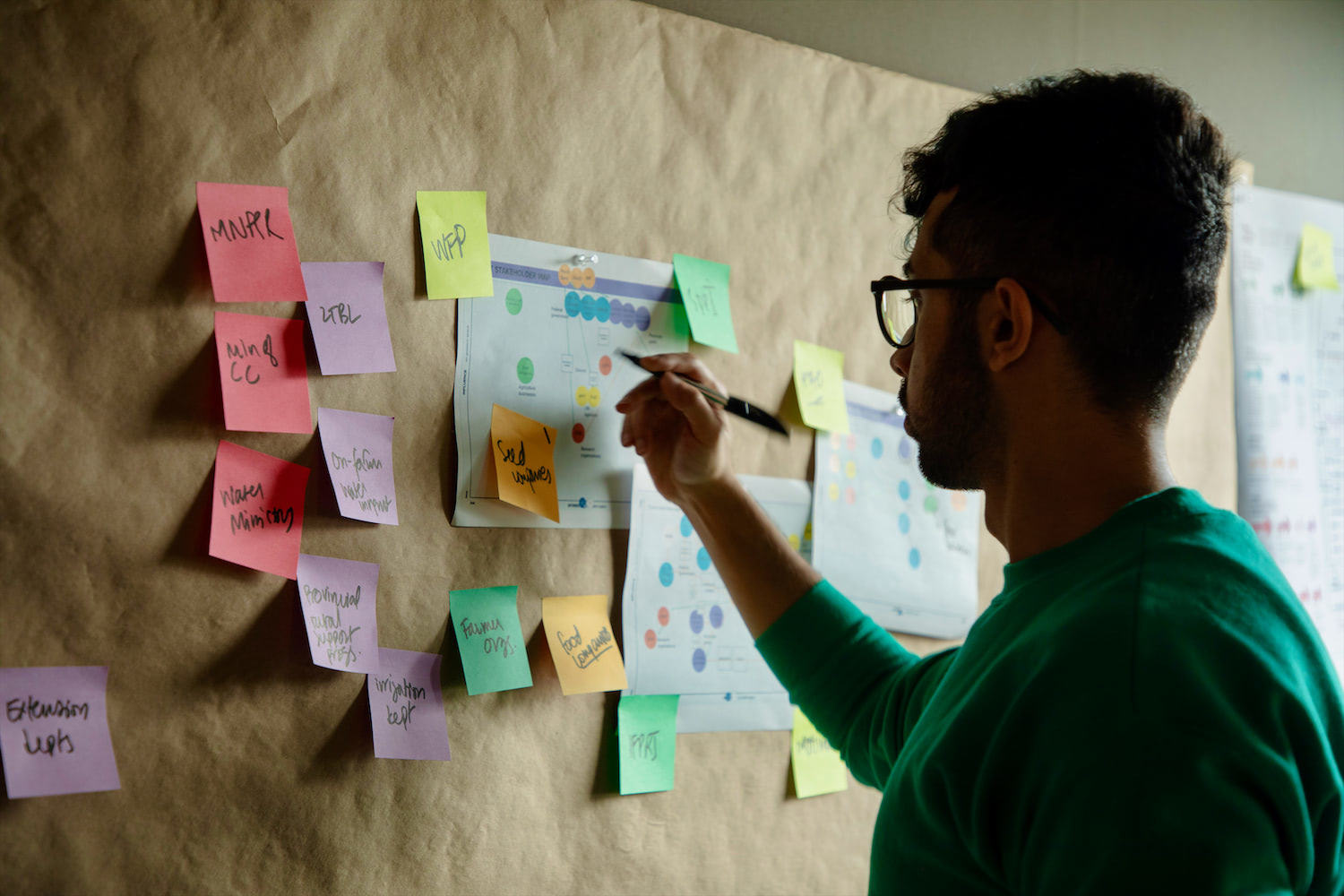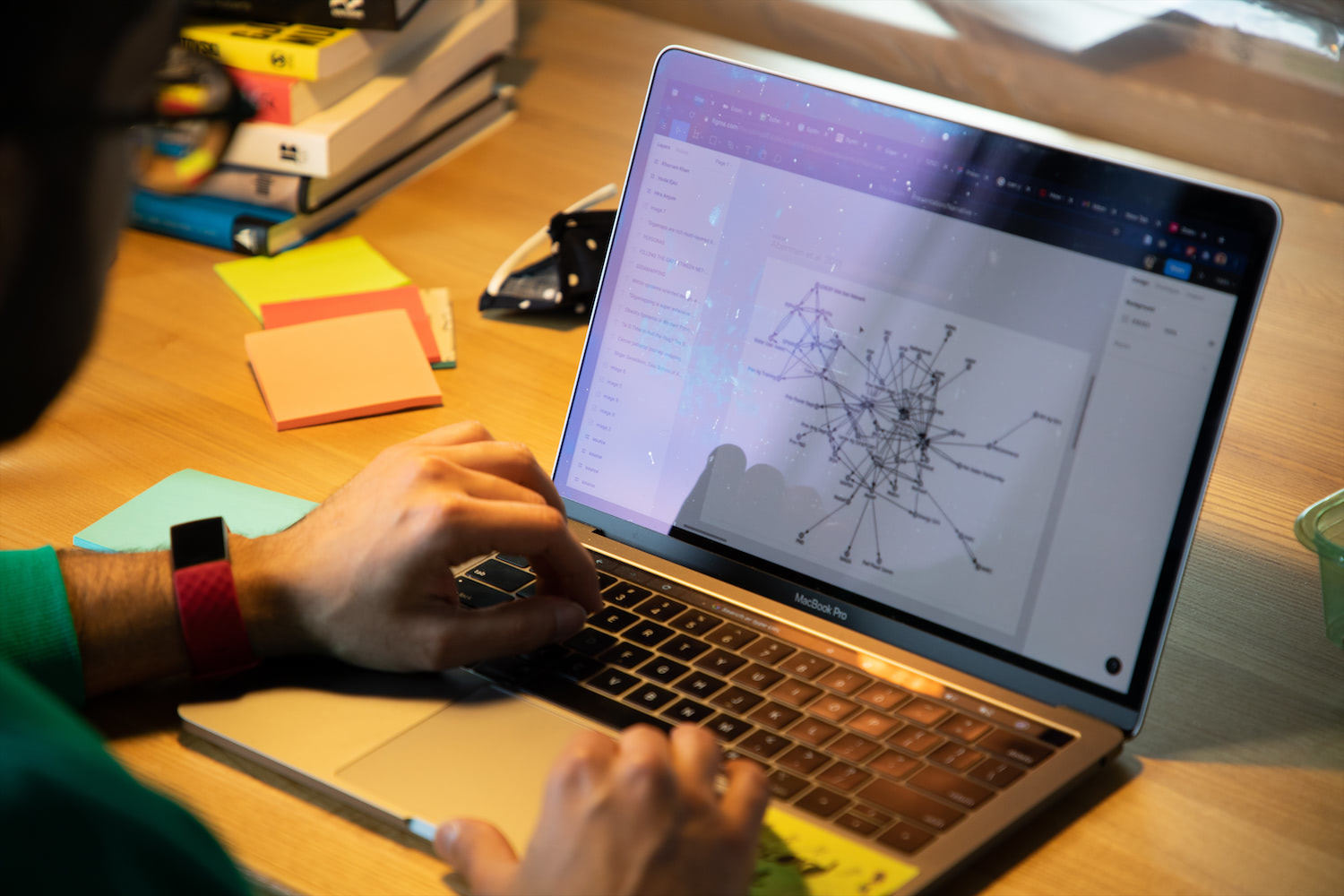Don’t be Dubed: Najwat Rehman on Designing a Better World
What has been the role of design in shaping the world as we know it? For Stamps Master of Design in Integrative Design candidate Najwat Rehman (MDes '21), this is a question that he's been deeply considering for several years now.
On January 28, Rehman shared his most compelling insights into the matter at the 2021 Rackham King Talks. He was one of five Rackham students who shared the relevance of their work to Dr. Martin Luther King Jr.'s legacy in a public talk. This year's MLK Symposium theme was "Where Do We Go From Here?"
Due to COVID-19 safety precautions, the symposium was delivered virtually via Zoom. Despite this, Rehman's unbounded passion came across in his presentation, titled “Can Design Help Us Get Out of the Mess it Helped Create?”
"I was grateful that the university provided a speaking platform not geared to a purely academic audience. Sometimes those talks can too easily get bogged down by pedantics and theory," Rehman says. "Generally, not enough people are aware of what design can do or its overall potential."
Viewers tuning into Rehman's 13-minute talk were taken on a journey that featured gripping images of human cruelty, social injustice and burning rainforests. He immediately advanced a dire image: "We look at the world today and it looks like everything is burning, disintegrating."
Rehman deftly went on to explain the problematic nature of design as it has been practiced so far. A poignant example he shared was the "PlayPump," a water pump that was deployed in many communities in sub-Saharan Africa. Essentially, as children play on the merry-go-round-like equipment, they're also drawing water for their communities.
"At first glance, it looks like a fun and exciting idea that's helping solve the complex issue of water scarcity. But look further and there's the problem of child labor," Rehman says. "I don't know what processes the PlayPump designers went through, but I think it's an example of designers not considering broader implications."
Perhaps they were dubed, Rehman says. "DUBE" is an acronym Rehman created that stands for “designers' uncritical, boundless enthusiasm.” It was birthed from recent deep reflection of his own approach as a designer.
"It's a state of elation that all kinds of creative people can relate to," he says. "You have a brilliant idea and know you can solve a problem. And you just pursue the idea head-on without critical thinking and investigating the broader, complex real-world impacts."

His insight is first-hand and based on numerous years of experience prior to his enrollment in the MDes program. Rehman earned his undergraduate degree in marketing from the Institute of Business Administration in Pakistan. His achievements include Halaatoscope, a safety app designed for urban areas (particularly the city of Karachi); Together for Tolerance, a nationwide youth movement to promote tolerance and harmony in Pakistan and The Desi Design, a magazine that spotlights the design and creative sectors of Pakistan.
One particular past project, an app called Reri, was highlighted in his King Talk. While living in Karachi, Rehman created Reri to connect customers to the countless street-cart vendors eking out a living on the scorching city streets.
"Making an app to facilitate that way of life was just a veneer or window dressing for a serious problem," he says. "I wasn't addressing the real issues. That economy and way of living shouldn't even exist for those cart vendors."
He adds, "I'm mortified because I didn't speak to even one single vendor. I was clearly dubed: I saw a problem, thought I was a brilliant designer and created a shiny app."
With the experience he's gained through the MDes program, today he would approach the problem differently and collaboratively. His first step: a deep dive into the problem space and sussing out the broader social, political, economic, and cultural factors.

"Maybe we realize that there are people who don't have spending power and rely on these low-cost options," he says. "Or maybe we learn people don't have public transport for far-off markets, so they rely on the cart vendors who are in almost every neighborhood."
Referencing his current research on climate change and food security in Pakistan, he stresses that his role will involve "designing with people, not for people," and looking at broad, complex systems first rather than "making the mistake of jumping to just one part of a big problem."
Pakistan is the country fifth-most vulnerable to the long-term effects of anthropogenic climate change. Among other pressing challenges, climate change also threatens the bedrock of Pakistan’s economy and society: agriculture. This, in turn, compromises food security across the country. Rehman is working in a complex problem space with numerous stakeholders such as farmers, policymakers and researchers to name a few.

"Already in my thesis work I've had what I felt were interesting ideas, but collaboration with experts and stakeholders have been essential," he says. "My ideas were not the right solutions and could have led to certain problems down the road."
Can he, as a designer, help build a better world?
"Absolutely. Some people think design is just about making things pretty. There’s a lot more that design can and should do,” he says. "We need designers who can make friends with a mess. Designers who can stand up to the complexity of an issue, rather than slay it on sight with a simple app."